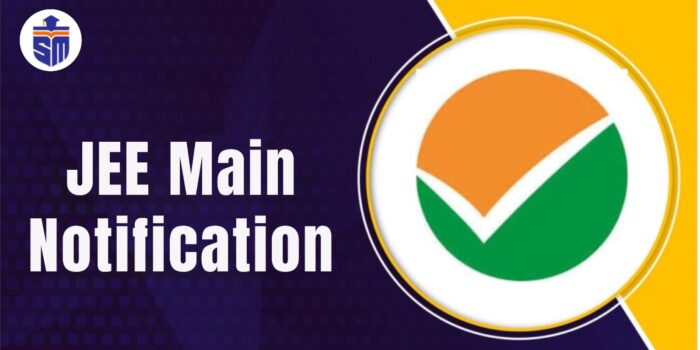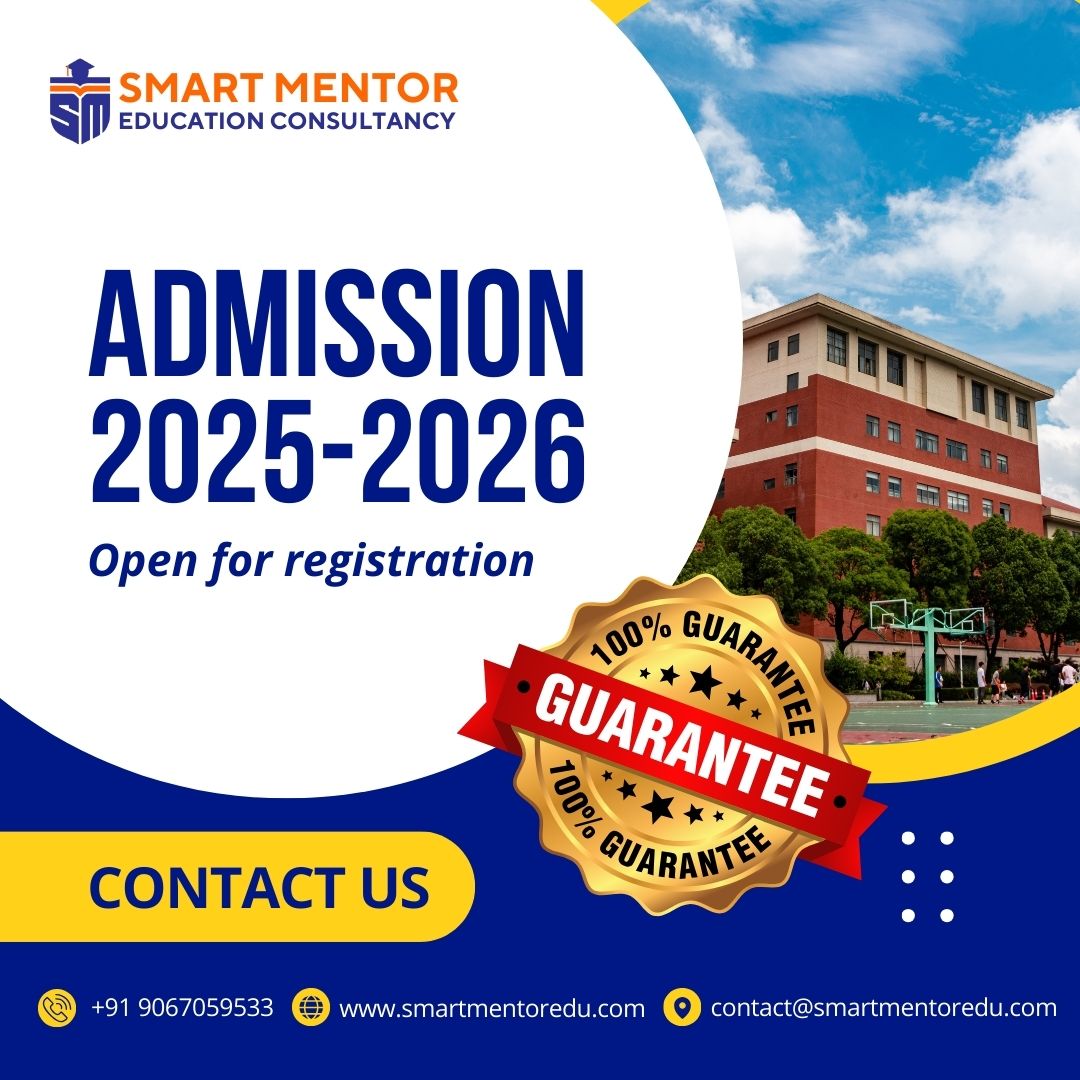
JEE Main: Complete Guide to India’s Premier Engineering Entrance Examination
Introduction to JEE Main
The Joint Entrance Examination (JEE) Main is India’s most prestigious and competitive engineering entrance examination, conducted by the National Testing Agency (NTA). It serves as the gateway to the premier engineering institutions across the country, including the National Institutes of Technology (NITs), Indian Institutes of Information Technology (IIITs), and other Centrally Funded Technical Institutions (CFTIs). JEE Main is also the qualifying examination for JEE Advanced, which is the entrance test for admission to the elite Indian Institutes of Technology (IITs).
With over 10 lakh aspirants appearing annually, JEE Main has established itself as the benchmark for engineering admissions in India, testing students on their conceptual understanding, analytical thinking, and problem-solving abilities. The examination not only evaluates a student’s academic proficiency but also their ability to perform under pressure, making it a comprehensive assessment of their potential to excel in the field of engineering.
JEE Main Exam Pattern
Paper 1 (B.E./B.Tech)
- Mode: Computer-Based Test (CBT)
- Duration: 3 hours
- Total Questions: 90 (30 questions each from Physics, Chemistry, and Mathematics)
- Question Type: Multiple Choice Questions (MCQs) and Numerical Value Answer Type Questions
- Sections:
- Section A: 20 MCQs with single correct option (per subject)
- Section B: 10 Numerical Value Answer Type Questions (per subject) – attempt any 5
- Marking Scheme:
- +4 marks for each correct answer
- -1 mark for each incorrect answer (only for MCQs)
- No negative marking for Numerical Value Answer Type Questions
- 0 for unanswered questions
- Total Marks: 300
- Language Options: 13 languages (English, Hindi, Assamese, Bengali, Gujarati, Kannada, Malayalam, Marathi, Odia, Punjabi, Tamil, Telugu, and Urdu)
Paper 2A (B.Arch)
- Sections: Mathematics, Aptitude Test, and Drawing Test
- Total Questions: 82 (Mathematics: 30, Aptitude Test: 50, Drawing Test: 2)
- Total Marks: 400
Paper 2B (B.Planning)
- Sections: Mathematics, Aptitude Test, and Planning Based Test
- Total Questions: 105 (Mathematics: 30, Aptitude Test: 50, Planning Based Test: 25)
- Total Marks: 400
JEE Main Syllabus and Important Topics
1. Physics
Mechanics:
- Kinematics
- Laws of Motion
- Work, Energy, and Power
- Rotational Motion
- Gravitation
- Properties of Solids and Liquids
Thermodynamics:
- Thermal Properties of Matter
- Thermodynamics
- Kinetic Theory of Gases
Electricity and Magnetism:
- Electrostatics
- Current Electricity
- Magnetic Effects of Current and Magnetism
- Electromagnetic Induction and Alternating Currents
- Electromagnetic Waves
Optics and Modern Physics:
- Ray Optics and Optical Instruments
- Wave Optics
- Dual Nature of Matter and Radiation
- Atoms and Nuclei
- Electronic Devices
- Communication Systems
2. Chemistry
Physical Chemistry:
- Basic Concepts of Chemistry
- States of Matter
- Atomic Structure
- Chemical Bonding and Molecular Structure
- Chemical Thermodynamics
- Solutions
- Equilibrium
- Redox Reactions and Electrochemistry
- Chemical Kinetics
- Surface Chemistry
Inorganic Chemistry:
- Classification of Elements and Periodicity in Properties
- General Principles and Processes of Isolation of Elements
- Hydrogen
- s-Block Elements
- p-Block Elements
- d and f-Block Elements
- Coordination Compounds
- Environmental Chemistry
Organic Chemistry:
- Purification and Characterization of Organic Compounds
- Hydrocarbons
- Organic Compounds Containing Halogens
- Organic Compounds Containing Oxygen
- Organic Compounds Containing Nitrogen
- Polymers
- Biomolecules
- Chemistry in Everyday Life
- Principles of Practical Chemistry
3. Mathematics
Algebra:
- Complex Numbers and Quadratic Equations
- Matrices and Determinants
- Sets, Relations, and Functions
- Mathematical Induction
- Permutations and Combinations
- Binomial Theorem
- Sequences and Series
Calculus:
- Limits, Continuity, and Differentiability
- Derivatives
- Applications of Derivatives
- Indefinite Integrals
- Definite Integrals
- Applications of Integrals
- Differential Equations
Coordinate Geometry:
- Straight Lines
- Circles
- Conic Sections
- Three Dimensional Geometry
Trigonometry:
- Trigonometric Functions
- Trigonometric Equations
- Inverse Trigonometric Functions
- Heights and Distances
Vector Algebra
Statistics and Probability:
- Measures of Dispersion
- Probability
- Conditional Probability
- Random Variables
- Bernoulli Trials and Binomial Distribution
JEE Main Preparation Strategy
1. Essential Study Materials & Books
Physics:
- NCERT Physics Class 11 & 12 (foundation)
- Concepts of Physics by H.C. Verma (conceptual understanding)
- Problems in General Physics by I.E. Irodov (advanced problems)
- Understanding Physics series by D.C. Pandey (practice)
- 43 Years’ JEE Main Physics by Disha Publications (previous year questions)
Chemistry:
- NCERT Chemistry Class 11 & 12 (must-read)
- Physical Chemistry by O.P. Tandon (problem-solving)
- Organic Chemistry by Morrison & Boyd (advanced concepts)
- Concise Inorganic Chemistry by J.D. Lee (reference)
- 43 Years’ JEE Main Chemistry by Disha Publications (previous year questions)
Mathematics:
- NCERT Mathematics Class 11 & 12 (basics)
- Objective Mathematics by R.D. Sharma (comprehensive)
- Course in Mathematics for IIT-JEE by Tata McGraw Hill (advanced)
- Problems in Calculus of One Variable by I.A. Maron (calculus practice)
- 43 Years’ JEE Main Mathematics by Disha Publications (previous year questions)
2. Strategic Time Management
- Long-term Planning (12 months):
- First 4 months: Complete the syllabus with focus on understanding concepts
- Next 4 months: Problem-solving practice and application-based questions
- Final 4 months: Intensive mock tests, revision, and previous years’ question practice
- Daily Schedule:
- 2-3 hours for each subject (Physics, Chemistry, Mathematics)
- 1-2 hours for revision of previously covered topics
- 1-2 hours for solving problems and practice tests
- Regular breaks using techniques like Pomodoro (25 minutes study, 5 minutes break)
3. Practice Tests and Assessment
- Solve at least 50 full-length JEE Main mock tests before the actual exam
- Analyze performance after each test to identify weak areas
- Practice subject-wise and topic-wise tests
- Solve previous years’ JEE Main question papers (last 10 years minimum)
- Maintain an error log to track and revisit mistakes
4. Subject-wise Preparation Tips
Physics:
- Focus on understanding concepts rather than memorization
- Create a formula sheet for quick revision
- Practice numerical problems extensively
- Pay special attention to mechanics and electromagnetism (high weightage topics)
- Connect theoretical concepts with real-world applications
Chemistry:
- Master NCERT content thoroughly (especially for inorganic chemistry)
- Create short notes for reactions, mechanisms, and named reactions
- Practice numerical problems in physical chemistry regularly
- Create flashcards for organic chemistry reactions
- Focus on conceptual clarity rather than rote learning
Mathematics:
- Practice a variety of problems for each concept
- Learn shortcuts and alternative methods for solving problems
- Focus on calculus and coordinate geometry (high weightage topics)
- Develop speed and accuracy through timed practice
- Master algebraic manipulations and substitutions
5. Optimal Study Techniques
- Active Recall: Test yourself on concepts without looking at the material
- Spaced Repetition: Revisit topics at increasing intervals
- Interleaved Practice: Mix up different topics and problem types
- Feynman Technique: Explain concepts in simple language to ensure understanding
- Mind Mapping: Create visual connections between related concepts
JEE Main vs. JEE Advanced
|
Aspect |
JEE Main |
JEE Advanced |
|
Conducting Body |
National Testing Agency (NTA) |
One of the IITs (rotational basis) |
|
Purpose |
Admission to NITs, IIITs, CFTIs, and qualifying exam for JEE Advanced |
Admission to IITs |
|
Difficulty Level |
Moderate to High |
Very High |
|
Question Pattern |
Mostly direct application based |
Conceptual and multi-concept application based |
|
Number of Attempts |
Multiple attempts per year (usually 2 sessions) |
Maximum 2 consecutive attempts in 2 years |
|
Eligibility |
12th passed or appearing |
Top 2,50,000 rank holders in JEE Main |
Top Engineering Colleges Accepting JEE Main Scores
National Institutes of Technology (NITs):
- NIT Tiruchirappalli
- NIT Surathkal
- NIT Warangal
- NIT Calicut
- NIT Rourkela
- NIT Durgapur
- NIT Silchar
- NIT Hamirpur
- NIT Jaipur
- NIT Kurukshetra
- NIT Patna
- Other NITs
Indian Institutes of Information Technology (IIITs):
- IIIT Hyderabad
- IIIT Delhi
- IIIT Allahabad
- IIIT Bangalore
- IIIT Jabalpur
- Other IIITs
Other Prestigious Institutions:
- Delhi Technological University (DTU)
- PEC University of Technology, Chandigarh
- Jadavpur University, Kolkata
- College of Engineering, Pune
- Birla Institute of Technology, Mesra
- Visvesvaraya National Institute of Technology, Nagpur
- Netaji Subhas University of Technology (NSUT), Delhi
- Indraprastha Institute of Information Technology (IIIT), Delhi
JEE Main Admission Process
- Registration: Register on the official JEE Main website during the application period
- Application Submission: Complete the application form with all necessary details
- Fee Payment: Pay the application fee online
- Admit Card Download: Download the admit card before the exam date
- JEE Main Exam: Appear for the computer-based test
- Results Declaration: Check results on the official website
- Admissions through JoSAA Counselling:
- Register for Joint Seat Allocation Authority (JoSAA) counseling
- Fill in college and branch preferences
- Seat allotment based on rank, category, and preferences
- Document verification and fee payment
- Report to the allotted institute
Tips for Exam Day
- Reach the exam center at least 45 minutes before the scheduled time
- Carry admit card and valid photo ID proof
- Read all instructions carefully before starting the exam
- Attempt easy questions first to build confidence
- Manage time efficiently – allocate approximately 1 minute per question
- Remember that negative marking applies for MCQs
- Skip difficult questions initially and return to them later
- Double-check numerical value answers as there’s no negative marking for them
- Review your answers if time permits
Common Mistakes to Avoid
- Neglecting NCERT books for advanced reference materials
- Studying without a structured plan
- Focusing too much on one subject at the expense of others
- Solving too many problems without sufficient concept clarity
- Not taking regular mock tests
- Ignoring revision of previously covered topics
- Cramming in the last few days before the exam
- Not analyzing mistakes from practice tests
- Overthinking during the actual exam
JEE Main Success Stories and Motivation
Many students from diverse backgrounds have cracked JEE Main with strategic preparation. Success stories consistently highlight:
- Consistent Effort: Regular study schedule without procrastination
- Smart Work: Focusing on high-yield topics and efficient problem-solving
- Balanced Approach: Equal attention to all three subjects
- Stress Management: Maintaining physical and mental well-being
- Positive Mindset: Believing in oneself and staying motivated
Conclusion
JEE Main is not just an examination but a journey that tests a student’s perseverance, discipline, and conceptual clarity. With a structured preparation strategy, consistent practice, and the right guidance, aspirants can navigate this challenging path successfully and secure admission to India’s premier engineering institutions.
Interested in Direct Admission in India?
Get Direct Admission in India’s Top Universities / College.





